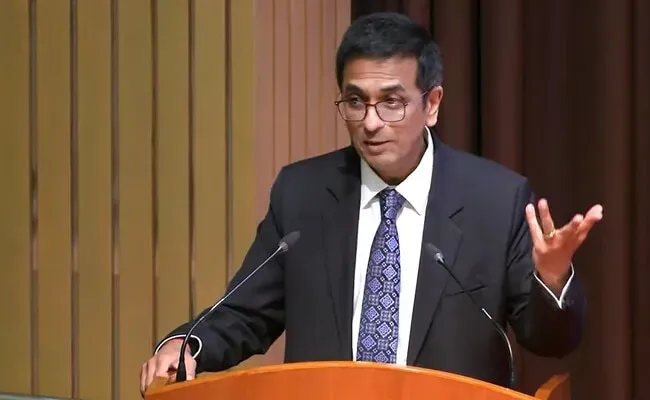Introduction to Court Vacations Debate
Chief Justice of India (CJI) DY Chandrachud addressed the ongoing debate regarding the long vacations taken by courts in India. This issue has been a point of contention, with critics arguing that these breaks delay justice. CJI Chandrachud, during a discussion at Cambridge University, articulated his perspectives on this matter, shedding light on the complexities involved in judicial work schedules and the importance of vacations for the well-being of judges and lawyers alike.
Judicial Workload and Well-being
CJI Chandrachud emphasized that the workload on judges is immense, often leading to burnout. The vacations are not merely periods of rest but are crucial for judges to recuperate and maintain their mental and physical health. He noted that staggered leaves, where judges take turns to go on vacation, might seem like a solution, but it disrupts the continuous break needed by lawyers, who also need time off. Therefore, the structured vacations serve a dual purpose: ensuring judges can return rejuvenated and that lawyers also have a predictable period of rest.
Impact on Justice Delivery
Addressing concerns about delayed justice due to vacations, CJI Chandrachud argued that the perception of delay is often more about systemic issues rather than the vacation periods themselves. He highlighted that the judiciary continuously works under significant pressure and that vacations help maintain the overall efficiency of the system. By ensuring that judges are well-rested, the judiciary can function more effectively when courts are in session, thus balancing the need for breaks with the imperative of timely justice.
Judicial Activism and Public Trust
In addition to the vacation debate, CJI Chandrachud touched upon the broader role of the judiciary in India, including judicial activism. He asserted that judicial activism is necessary in a vibrant democracy to protect fundamental rights and ensure justice when other branches of government fail to do so. This activism, however, must be balanced and should not overstep into the realms of the executive or legislative branches. He emphasized the judiciary's role in maintaining public trust, which is foundational to its authority and effectiveness.
Balancing Activism and Restraint
CJI Chandrachud discussed the fine line the judiciary walks between activism and restraint. While the courts must act decisively to uphold rights and correct injustices, they must also respect the separation of powers. This balance is crucial to prevent judicial overreach, which can undermine democratic governance. He pointed out that judicial decisions should be guided by constitutional principles and the need to uphold the rule of law, ensuring that activism is grounded in legal reasoning rather than personal beliefs.
Public Perception and Media
The CJI also addressed the influence of media on public perception of the judiciary. He acknowledged that media plays a critical role in holding the judiciary accountable but also cautioned against sensationalism. Media representations can sometimes distort the realities of judicial work, focusing on delays and controversies rather than the substantive achievements and challenges faced by the judiciary. He called for a more nuanced understanding of judicial processes and the constraints under which courts operate.
Technological Advancements in Judiciary
Highlighting advancements, CJI Chandrachud mentioned the increasing use of technology in the judiciary, which has been accelerated by the COVID-19 pandemic. Virtual hearings and electronic filing systems have been implemented to improve accessibility and efficiency. These technological advancements aim to reduce delays and make the justice delivery system more resilient. However, he also noted the challenges associated with digital transformation, such as ensuring cybersecurity and bridging the digital divide.
Conclusion
CJI DY Chandrachud’s remarks provide a comprehensive view of the challenges and considerations in the judiciary regarding court vacations, judicial activism, and public trust. By addressing the need for vacations, the role of judicial activism, and the impact of media, he underscores the complexities of maintaining an effective and trusted judicial system. His insights call for a balanced approach that considers the well-being of judges and lawyers, the efficient delivery of justice, and the judiciary's crucial role in upholding democracy and constitutional values.










0 Comments
Thank you for your response. It will help us to improve in the future.